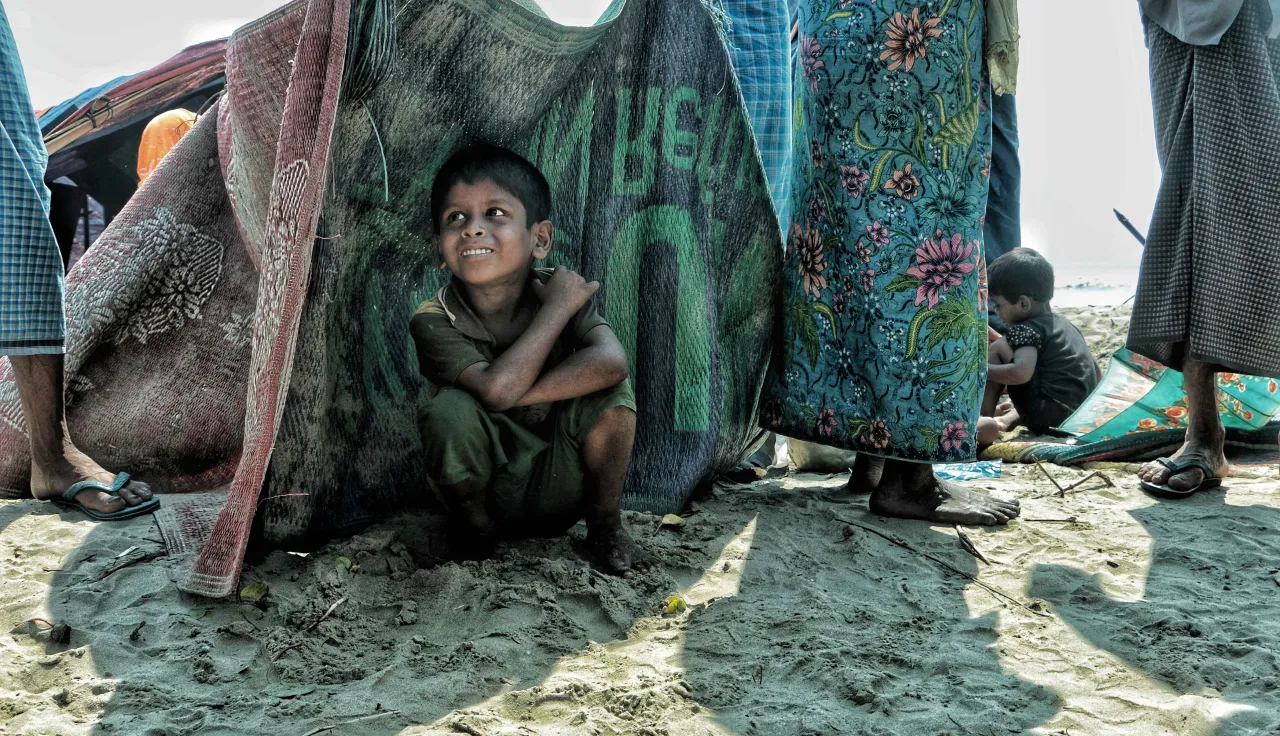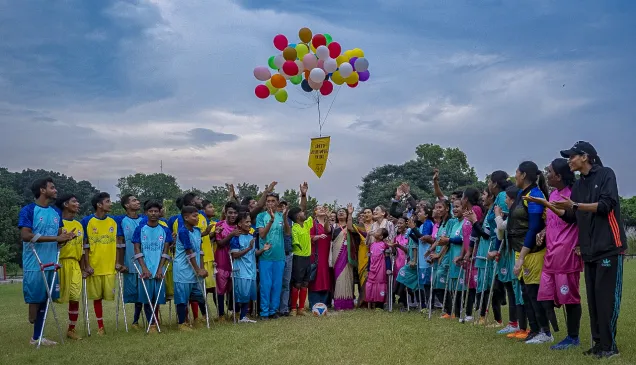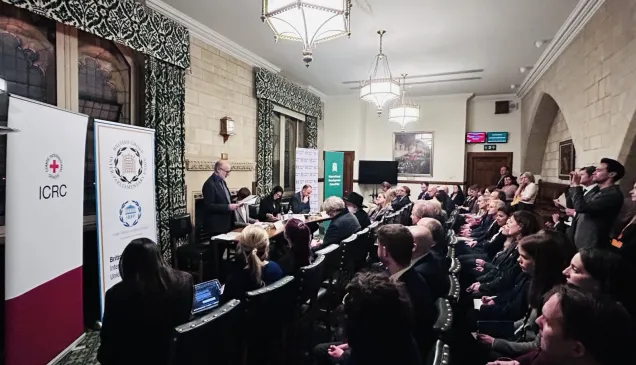Born on a beach: A Red Cross midwife on life in Myanmar

Olivia Hill has worked in numerous humanitarian emergencies across the world. The British midwife has just finished a year long mission with the ICRC in Myanmar and looks back on her time in the country.
Any mother will tell you that being pregnant while on the move is difficult at the best of times. Being pregnant while fleeing bitter violence, walking for days to get to safety, and then taking a boat to a different country, is another matter entirely.
This was the reality for many women in Rakhine State, Myanmar. When violence flared in August 2017, thousands upon thousands of people fled their homes and made the arduous journey to neighbouring Bangladesh.
Most families headed for the coast, sometimes walking for days to get there. The beaches, where previously people used to come and enjoy picnics, became crowded with people waiting for boats to ferry them across to Bangladesh.
Conditions on the beaches quickly deteriorated. The ICRC started providing shelter materials to protect families from the scorching sun. We supplied drinking water and a separate water supply for hygiene needs, as well as temporary toilets and hand-washing facilities to prevent diseases.
Whenever people flee violence, whether here in Myanmar or anywhere else in the world, there is never time to pack possessions, never time to consider what to do or where to run. You just grab what you can and go.
For pregnant women, the stress of being in a situation like this can result in premature labour and birth. Some women we met complained of abnormal pains and fever.
As part of an ICRC health team, my job as a midwife was to help any pregnant women as best we could. My main concern was what would happen if expectant mothers went into labour while on the beach.
People were having to wait days for boats to take them to Bangladesh. For some, the days turned into weeks.
We only had one birth on the beach and the delivery was without complication. However, the newly-born baby was weak and his mother couldn't produce enough breast milk to feed him, so we provided food for the baby and mother.
Born on a beach exposed to the elements, his first journey was on a rickety boat across choppy water; his first home likely a makeshift shelter in a camp on a muddy hillside in Cox's Bazaar. What kind of a start to life is this?
We travelled to the beaches as often as we could, taking medical supplies, food, blankets, bottled water, and tarpaulins.
With the limited medical kits at our disposal, we treated people's ailments as best as we could. But it quickly became apparent that physical conditions only told part of the story. People had witnessed extraordinary acts of violence and were clearly emotionally scarred.
What of those left behind?
I arrived in Maungdaw, Rakhine State, in November 2017. The town had been at the epicentre of violent clashes several months earlier.
Helping those fleeing the fighting was our priority in the initial weeks and months. As the situation calmed, our focus turned to the needs of communities not uprooted by violence.
Rakhine State suffers from widespread poverty and poor infrastructure. Inter-communal violence between communities has long marred life here. Movement restrictions affect all communities.
The health care system is ill-equipped to cope with the demands placed upon it. In Rakhine, there are five health workers per 10,000 people (Advisory Commission on Rakhine State). According to the World Health Organisation, there should be a minimum of 22 health workers per 10,000 people.
In rural areas, health facilities and medical staff are even harder to come by. According to the Advisory Commission on Rakhine State, only 19 per cent of women give birth in professional health facilities, compared to 37 per cent nationally. The child mortality rate is also higher than the national average.
Many people are simply too poor to afford the transportation costs to health centres in urban areas. Cultural norms and movement restrictions also limit access. The upshot is that people across all communities do not get the medical care they need.

Olivia Hill at a mobile health clinic in Rakhine State. Mobile clinics are vital in remote areas CC BY-NC-ND / ICRC / Lin Hnin Aye
Working closely with the Myanmar Red Cross, the ICRC started using mobile health units to plug these chronic gaps. Mobile health units comprise a small team of medical professionals who travel to villages to administer services.
Working in this way, we're able to provide basic health care, identify communicable diseases and refer patients for follow-up. Between February and August this year, the mobile clinics saw more than 4,000 patients across the two townships of Maungdaw and Buthidaung.
Of course our medical teams may not always be present when women go into labour. So we distribute clean delivery kits, with a plastic sheet for the woman to lie on; a sterilised surgical blade to cut the umbilical cord; a cord tie; examination gloves; soap; cloth to wrap the baby; and gauze cotton.
While the mobile health units offer a degree of medical care that people would otherwise struggle to get, they are only a short-term solution.
People need a far more comprehensive health care system. There needs to be a political solution to the wider crisis and long-term investment in the development of Rakhine State. Until then we will carry on plugging the gaps, but that is all we will ever be able to do.
Olivia Hill, from Liverpool, ICRC midwife in Myanmar.



